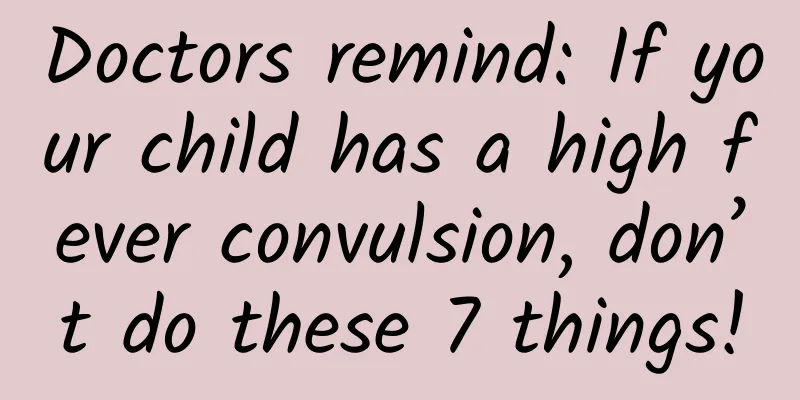A brief analysis of the five common mistakes made by independent game CPs

|
In simple terms, independent games refer to games that are independently produced and are not for commercial purposes. These games are full of creativity and have very high playability. The reason why I like independent games is that creativity is the soul of independent games. They break away from the rules and regulations of traditional games, making the games unique. Some game plots are unexpected, and the gameplay of children's games is ingenious, which will always bring you surprises and a bright feeling. As technology becomes more and more influential in our lives, expectations of developers and publishers are rising. In early 2014, we saw a more pronounced transition in the games market, with more and more games being done by one person, from the development of the game to exploring its target and ultimately its audience. Today's game promotion forms are very rich and varied. Cross-media promotion and social networks have become an inevitable choice for developers. At the same time, developers can use these networks to distinguish between passive viewers and active players. I still see that many teams are still making the same mistakes they made many years ago. The following are 5 mistakes that development teams still often make, hoping to help everyone avoid these mistakes. 1. Lack of product positioning Many development team members view their product as a task without really understanding the product's own positioning. There has to be a connection and synchronization between the product promotion method and the development team. But in most cases, the development team does not understand these aspects at all, so there is an emotional and communication gap. Small development teams are better at this issue because they have to do everything themselves. They must work closely to keep the promotion team and the development team informed of each other's progress, such as what stage of development the product is in and what kind of product they are developing. Imagine if everyone on the team really understood what product they were working on and what type of players were the promotion or experience targets, then both the development and promotion of the game would become much simpler. Your team's further understanding of the social and commercial implications of the game product is far more important than just focusing on developing a product for X or Y players. 2. Insufficient understanding of competitors and development trends Not understanding what your competitors are doing will create more work for you in the long run. Comparing with your competitors can help you understand your own capabilities and whether your team's products can exceed consumer expectations. By knowing the aspects of your competition, you can set the tone for your own products. The R&D team is not developing a "self-" product. Developers need to look further ahead and set the goal of exceeding consumer expectations as the product. Do you know the difference between your game and the top 5 competitors' games? If you don't know the answer, then you should compare yourself with them, because no one will pay for a game that is "made behind closed doors". 3. Underestimating the true value of video for game discovery Video is one of the simplest forms of learning, sharing and communication. Video content is also the most direct way to communicate with players. Video can convey product information to players. YouTube should be the video communication medium that developers pay the most attention to. Through the playback of videos, players can form awareness and familiarity with the game. In order to stand out from media such as Youtube, developers must create unique and original content. Because there are many types of videos on video websites, it is necessary to attract users and players as much as possible. Highlight the fun and creativity of the game. In terms of search, players mainly rely on two sources, namely Google and YouTube, so the name of your video is as important as the content. According to a recent Google survey on gamers on YouTube: 1. 50% of video viewers are developers/publishers, and 47% are "community" short videos, such as "Let's Play Together" and game walkthroughs. 2. One-third of gaming videos are watched on mobile devices. Google believes that these viewing rates are due to players needing to know the strategy when playing TV games or PC games. 3. The most watched game videos on YouTube are not trailers, but reviews. 4. Incomplete preparation of media materials Before releasing your game, you need to provide journalists and publications with all the materials they need to better cover your game. Therefore, as a developer, you must prepare media materials such as screenshots, art descriptions, trailers, and press conferences. Especially when human resources are limited, it is very important to reduce the time it takes for the media to request game information. If the media fails or cannot get the information they want, they may ignore your product. In short, if you need to attend a game exhibition, you need to be well prepared and make sure you can communicate with the media directly or through a representative. If you think that a PR agency can better handle the media work, then you can consider working with them, but only if you have enough budget. 5. Lack of market awareness and understanding of player discussions Conduct surveys on your target players to convey your message to them as best as possible. Understanding your players includes obvious factors such as age and gender, as well as information such as what games they are playing recently, where they spend their money, how they spend their free time, whether they use smartphones, how long they are online each week, when they are most active during the week, and what types of brands they are most obsessed with. Conducting surveys on your target players can help you understand more. The community is the backbone of a game product, and the players in the community are the most critical factor in extending the life of the product. Pay attention to the players and make them feel involved in every aspect of the game. After winning the hearts and minds of the players, the next biggest challenge is to keep them in the game for more than 6 weeks. The first 30 days are critical, but 6 weeks means that loyal players will not leave you easily. |
<<: The stock market is falling. Are you, a startup, ready for the winter?
>>: Summary of various sorting algorithms
Recommend
30 Taobao online store promotion methods that novices must read
For a novice opening a store, just waiting won’t ...
Why is the Zhongyuan Festival called the "Ghost Festival" and how are the three yuan divided into upper, middle and lower yuan?
This article is about 4160 words Reading time: 11...
Huaqing Embedded Development System Course_2021
: : : : : : : : : : : : : : : : : : : : : : : : : ...
Four minutes to watch Apple's 2017 Fall Conference
At 1 a.m. Beijing time on September 13 , Apple’s ...
"Taiwan-Internet linkage" changes the situation and creates a TV program ecosystem
In recent years, video websites have been claimin...
Diseases come from the mouth! Eat less of this food every meal and live more than "10 years"
Not long ago, the salt limit standard was raised ...
Changan Oushang X7 PLUS interprets technological equality, 100,000-class SUV enjoys 300,000-class smart cockpit
The automotive industry is in a period of great c...
Tips for boosting sales on your live streaming account!
It is obviously a children's water bottle, bu...
Are mobile phones also "afraid of cold"? They run out of battery in winter? The reason is actually this!
The weather has turned cold again. Although there...
vivo Advertising Alliance User Guide
vivo Advertising Alliance User Guide 1. Create Me...
Knowledge sharing will be the new direction for the future explosion of robots
What if robots could solve more problems independ...
4K+HDR+curved screen, which one can satisfy your imagination of future TV at once?
Image quality is an unchanging requirement for di...
How long will these IP marketing be popular?
No one can tell how long they will remain popular...
In my opinion, the 4+n key operational thinking, do you have it? ?
When I first started learning operations , I read...
Why are most of the mobile phones sold around the world made in China, South Korea and the United States? Don’t other countries make mobile phones?
[[441305]] According to the global mobile phone s...









